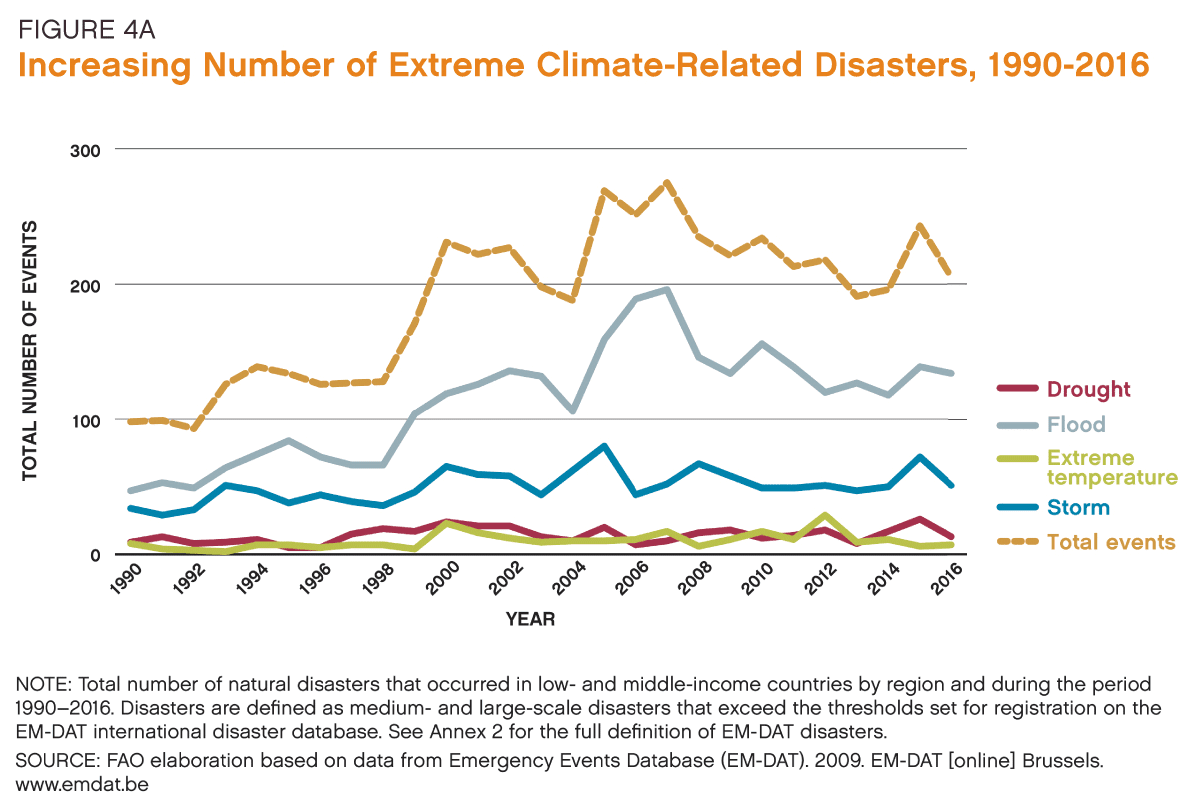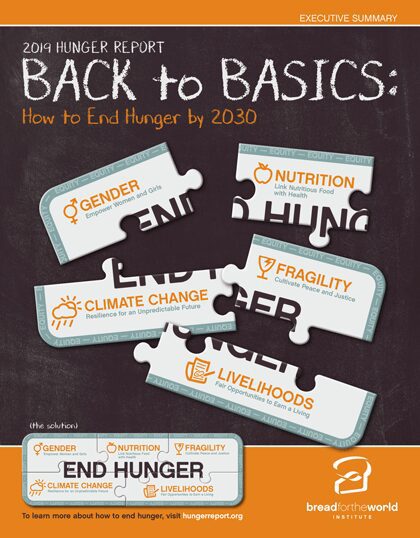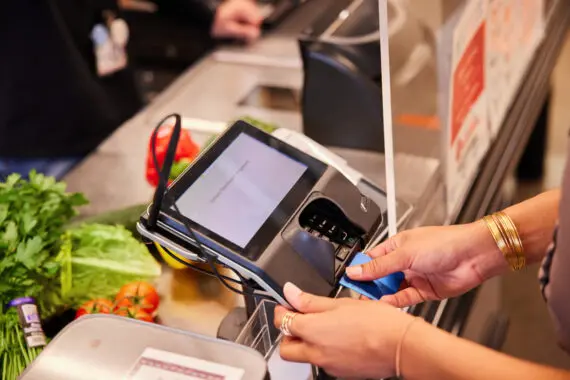Millennials and Generation Z Seek Climate Justice in Court
Younger generations have the most to lose if today’s leaders in government do not act more assertively to slow climate change. This is the basis for an inspired climate advocacy campaign that is currently in progress, centered on a lawsuit filed against the U.S. government in federal court. The plaintiffs, 21 children and young people ranging in age from 10 to 22, allege that the government has knowingly violated their rights by failing to respond to climate change more forcefully and effectively.
Bill McKibben, pioneering climate activist and founder of the international environmental organization 350.org, describes the plaintiffs’ day in court as “the most important lawsuit on the planet right now.”

The case began on October 29, 2018, in the U.S. District Court in Eugene, Oregon. The plaintiffs want the federal government to implement a national Climate Recovery Plan consistent with the best available scientific analysis. The plan would prioritize reducing greenhouse gas emissions, primarily carbon dioxide (CO2). Bill McKibben’s organization is named after the number considered the maximum safe level of CO2 in the Earth’s atmosphere, 350 parts per million. The level today is 408 parts per million.
Nobel Laureate and economist Joseph Stiglitz will appear as an expert witness. He has been providing pro bono analytical support, which includes a 50-page expert’s report that argues that the U.S. government, through “insufficient action on climate change, [is] imposing and will continue to impose enormous costs on youth plaintiffs.”
The United Church of Christ (UCC) Council for Climate Justice is calling on the faith community to publicly support the children and youth who are bringing the case to court. Kiran Oommen, one of the plaintiffs, is the son of ordained UCC minister Melanie Oommen, and UCC was the first denomination to call for financial divestment from fossil fuels. In addition to providing financial support for the legal team, the UCC is encouraging young leaders to show their solidarity with the 21 children and youth by delivering sermons on climate justice.
Our Children’s Trust, an environmental organization, is providing legal support to the plaintiffs. It has been supporting cases brought by youth in state courts since 2011 and describes its mission as “elevat[ing] the voice of youth—to secure the legal right to a healthy atmosphere and stable climate on behalf of all present and future generations.”
The federal lawsuit, Juliana v. United States, was filed in 2015, but the federal government has fought at every stage to block the case from coming to trial, and it continues to petition for it to be dismissed. The case has drawn national media attention, which has given several of the plaintiffs a platform to speak out. “You don’t have to call yourself an activist to act,” said lead plaintiff Kelsey Juliana in an interview with Bill Moyers on Moyers & Company. “I think that’s so important that people my age really get [that] into their heads. As a younger person, I have everything to gain from taking action and everything to lose from not … It’s important that youth are the ones who are standing up because of the fact that we do have so much to lose.”
Julia Olson, chief legal counsel for the plaintiffs, believes that whatever decision is reached by the District Court is likely to be appealed to the Supreme Court. The U.S. government is virtually certain to file an appeal if it loses the case or key elements of it. You can follow the latest news about the case at Our Children’s Trust.
This advocacy impact story is part of Chapter 4: Climate.
Sign Up
Get periodic emails with more resources about the issues discussed in the Hunger Report
Print or Download Report Materials

2019 Hunger Report Executive Summary
Ending hunger is within reach. 2030 sounds audacious. But decades of victory over hunger, despite recent setbacks, reveal a different picture. It is rapid global progress, not any one which persuades us that ending hunger and malnutrition is possible sooner rather than later.
Christian Study Guide
The study guide offers a biblically-based tool to explore God’s call to protect vulnerable people in the 21st century. The guide summarizes the report’s overall themes and provides discussion questions and group activities on select topics in the report.
Introduction: Ending Hunger is Within Reach
A national effort to end hunger could bring our country together and this goal has in fact, already brought the world together. Ending hunger and all forms of malnutrition by 2030 is one of the Sustainable Development Goals (SDGs) adopted in 2015 by the governments of 193 countries, including the United States, with support from their civil society and business sectors.
Chapter 1: Livelihoods
The only way to end hunger with dignity is to enable people to earn the income they need to provide enough healthy food for themselves and their children.
Chapter 2: Nutrition
Maternal and child nutrition is a critical factor in healthy human development. Nutrition is a lifelong necessity for the health and well-being of individuals, their communities, and ultimately their countries.
Chapter 3: Gender
Women in every society are treated as less valuable and/or less capable. Women and girls are the largest group of marginalized people. Yet food security is dependent on them.
Chapter 4: Climate Change
Populations that are most affected by the impact of climate change are those most likely to be hungry. Climate change is the biggest barrier to ending hunger once and for all.
Chapter 5: Fragility
When marginalized groups or people living in extreme poverty turn to violence, hunger is very often an underlying factor. Hunger is both a cause and an effect of the violence associated with fragile environments.
Religious Leaders’ Statement
“As followers of Christ, we believe it is possible to build the moral and political will to end hunger by 2030. The world has made unprecedented progress against hunger, poverty, and disease in recent decades. The United States has made progress more slowly than many other countries, but it is feasible to end hunger here, too.” — excerpt from religious leaders’ statement
Hunger Report Sponsors
Co-Publisher: Margaret Wallhagen and Bill Strawbridge; Partners: American Baptist Churches USA World Relief, American Baptist Home Mission Societies, Christian Church (Disciples of Christ), Christian Methodist Episcopal Church, Christian Women Connection, Church of the Brethren, Community of Christ, Cooperative Baptist Fellowship, Covenant World Relief/Evangelical Covenant Church, Evangelical Covenant Church, Evangelical Lutheran Church in America, Growing Hope Globally, Independent Presbyterian Church Foundation, International Orthodox Christian Charities, National Baptist Convention, USA, INC, Society of African Missions, United Church of Christ, Women’s Missionary Society of the African Methodist Episcopal Church



